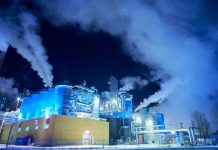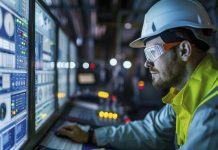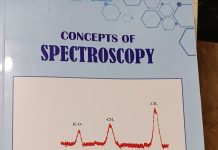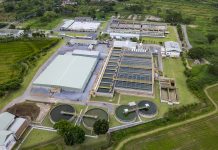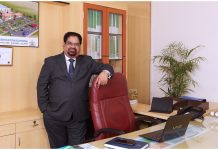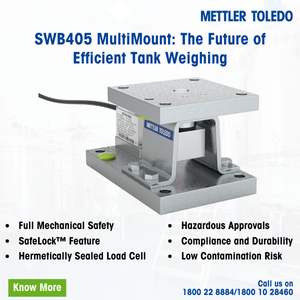At the ACHEMA Opening on 10 June 2024 German federal minister for economic affairs and climate action, Dr Robert Habeck, and thought leaders from the financial sector, the chemical industry and suppliers pointed out how the process industry is positioning itself within new global framework conditions. Their conclusion: The process industry is vital for the transformation of the economy and society as a whole and international cooperation is the order of the day to overcome the manifold challenges.
Dr Habeck said, “Chemical and pharmaceutical technology, biotechnology and environmental technologies, hold tremendous potential for a more sustainable economy”. He followed by stating examples ranging from the sustainable production of everyday amenities to the development of new pharmaceuticals, from energy-efficient equipment to digitalized, yet more efficient plants.
According to Habeck, ACHEMA’s innovation topics digitalization, sustainability, laboratory technologies, pharmaceuticals, process optimization, and hydrogen illustrate the vital importance of the process industry for the transformation of our economies and societies as a whole. He said, “These themes are not mere buzzwords, but the pillars upon which we will build the future”.
Dr Klaus Schäfer, Chairman of DECHEMA e.V., and former CTO of Covestro mentioned the challenges, the process industry is facing: increasing instability and, in some cases, protectionist tendencies in trade policy, the shift towards greater sustainability, the development of the hydrogen economy and the endeavour to secure raw materials.
According to Schäfer these developments touch on deep-rooted certainties and lead to a ‘duck to cover’ reaction, in which we hide behind established – if outdated – technologies and close borders – also the borders of the mind. “For our disciplines, ‘duck and cover’ has never been an option – innovation and thinking beyond limits is in our DNA. And you will find many outstanding examples for this in the exhibition and the congress at ACHEMA 2024,” stated Schäfer.
He continued, that the upcoming hydrogen economy, but also new concepts for energy generation, use and storage or the vision of a circular economy require even closer interactions and joint ideas for our economic system. He said, “Despite all the challenges we are currently facing, we have to find new ways for international cooperation. It has to be based on trust, it has to be fair and it requires commonly accepted goals. Fairness also implies level playing fields in terms of regulatory and policy frameworks; setting common goals implies that we are aware of conflicting interests and try to actively manage them”.
As per the press release, in the panel discussion Julia Schlenz, President of Dow Germany, Austria and Switzerland, Marcus Miertz, Member of the Executive Board of SAMSON AG, and Dr Fritzi Köhler-Geib, Chief Economist of the KfW Group, shared their views on the situation, critically examined exemplary challenges and discussed possible solutions.
“The transformation of the chemical industry toward carbon neutrality is a multifaceted and complex process. Many of the necessary technologies and solutions to transform our production facilities, still need to be developed, scaled, and implemented. At the same time, many of our products are essential for the transformation. Therefore, we emphasize innovation and recognize that a forward-looking process industry is key to the success of this transformation” informed Julia Schlenz, President of Dow Germany, Austria and Switzerland.
At the same time, she argued in favour of remaining open to technology, setting targeted regulatory frameworks, and giving the industry the opportunity and trust to discover the best technologies and methods to achieve the common goals.
Marcus Miertz, Member of the Executive Board of SAMSON AG, is convinced that the future of the process industry will be strongly influenced by innovations in the areas of digitalization, sustainability and efficiency. The use of artificial intelligence will be crucial here. These technologies can help to increase efficiency, reduce errors and improve product quality. “Overall, we are confident that these developments will enable the process industry to utilize new opportunities and possibilities to develop and grow”, said Miertz.
“Climate neutrality and digitalization require a massive transformation and large investments across all sectors, but they also present great opportunities for future growth and employment”, emphasized Dr Fritzi Köhler-Geib, Chief Economist of the KfW Group. In Europe, despite challenges we are in a good position due to our strong innovative capacity. “We need to build on this”, she urged.





